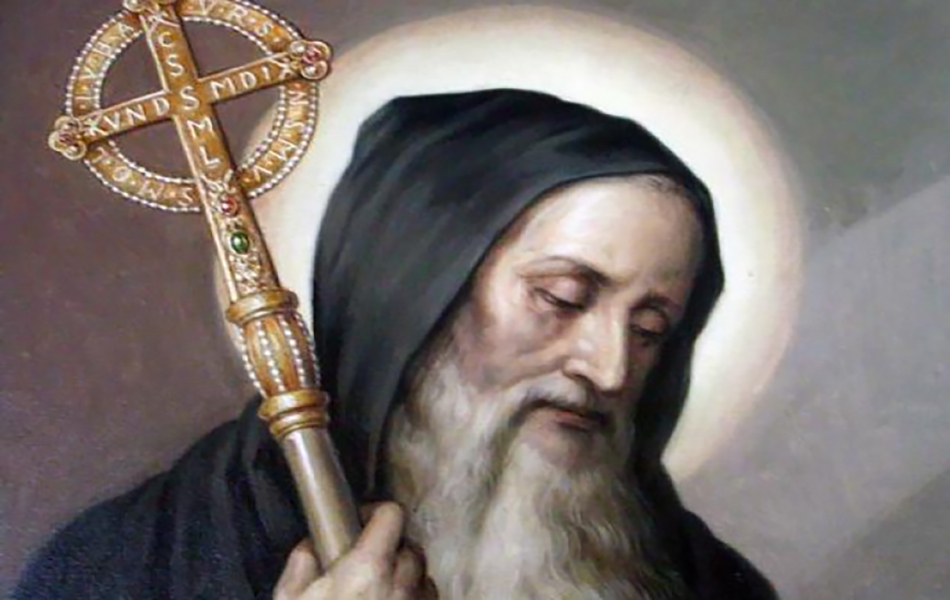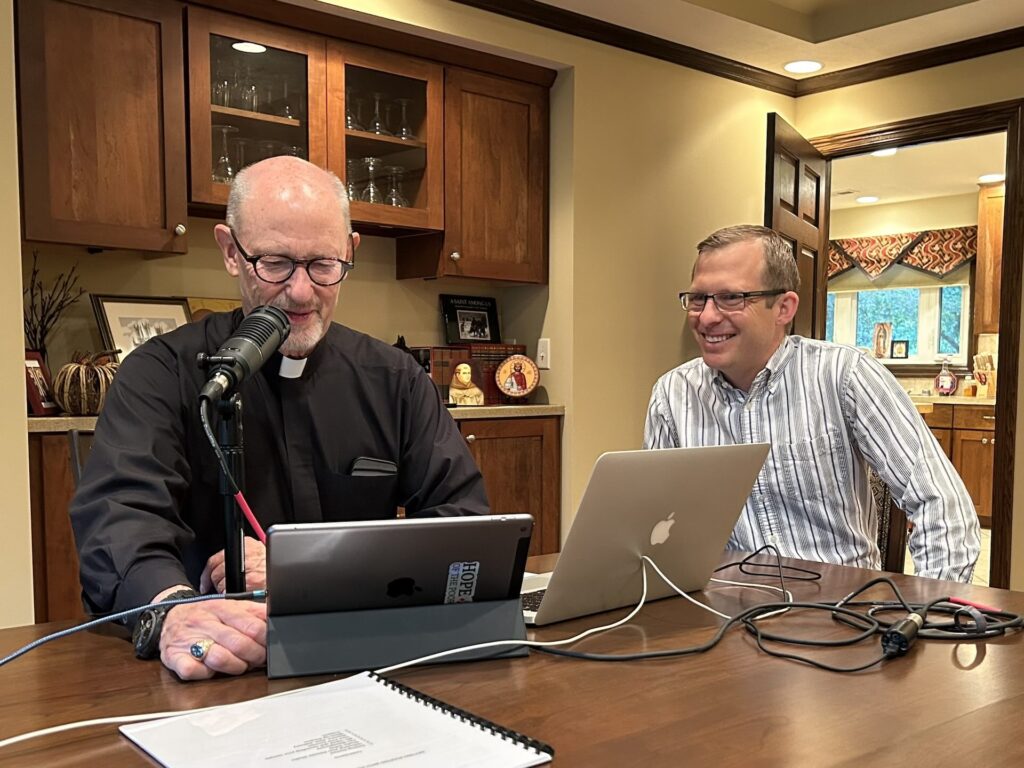On July 11th, we celebrate the feast of the great father of monks, St. Benedict of Nursia (480-547). He recognized that in order to live out the Gospel message, we need to make a strong commitment of our whole lives, holding nothing back. He also realized that we can do this more easily with the support of committed brothers. The monks together live a life of regularity in obedience, prayer, work, penance, and communal life.
The second half of Kings of Summer focuses on the theme of spiritual fatherhood to push us out of acedia. God is calling us as men to exercise a spiritual fatherhood, no matter our state in life, in order to support and defend others, guiding them to Christ and helping them to follow his will. A father gives life and nourishes it, and there are many ways we can do this, including but also going beyond biological fatherhood.
Benedict, for instance, saw the monastery as a family, with the abbot having the role of father. It is what the name means, coming from the Aramaic abba. The abbot is a man who lives for others, investing himself in the life of his monks to help them to grow and to follow Christ. He does not think primarily of himself and his own needs.
Chapter 64 of Benedict’s great Rule, which covers the election of the abbot, states that the abbot must serve rather than be served, in imitation of Christ. To fulfill his role properly, “It behooves him therefore to be learned in the divine law, that he may thence bring forth things new and old; to be chaste, sober, merciful; and let him always exalt mercy above judgment, that himself may attain it. Let him hate the faults, let him love the brethren. In the matter of correction, let him act prudently and not too severely, lest while he desires to scrape off the rust too much the vessel be broke … and let him take pains to be loved rather than to be feared. Let him not be full of commotion nor anxious, let him not be over-bearing nor obstinate, jealous nor too suspicious.”
Benedict paints a picture of the men we must strive to become if we are to be a spiritual father to others. Ultimately, it means being like Christ, the good shepherd who laid his life down for his sheep. If we live like this, we help others to come to life in Christ.
St. Benedict serves a model for Exodus Men not only for this spiritual fatherhood, but also because he embodies our way of life rooted in prayer, asceticism, and fraternity.
Who’s been the king of your Summer? Start overcoming Summer sloth today by reading through 2 Samuel with us and following King David’s example!
Dr. Staudt serves as Director of Content for Exodus and as an Instructor for the Lay Division of St. John Vianney Seminary. He is the author of How the Eucharist Can Save Civilization (TAN), Restoring Humanity: Essays on the Evangelization of Culture (Divine Providence Press) and The Beer Option: Brewing a Catholic Culture Yesterday & Today (Angelico Press). He holds a Ph.D. in systematic theology from Ave Maria University and B.A. and M.A. in Catholic Studies from the University of St. Thomas (St. Paul, MN). He and wife, Anne, have six children and he is a Benedictine oblate.





